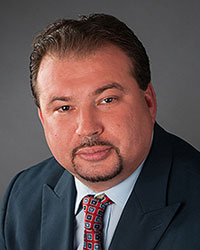Wrongful Convictions & Restorative Justice: What’s the Connection?
- Lisa Rea and Jeffrey Deskovic
- Oct 29, 2018
- 3 min read
Some think there is little connection between wrongful convictions and restorative justice, but we have learned that the connection is direct. In this article, RJ4All friends, Lisa Rea and Jeffrey Deskovic tell their story.
The missed connection
Some years ago Lisa was speaking at a Texas event sponsored by a justice reform organization committed to ending the death penalty. The speakers included victims of violent crime opposed to the death penalty as well as death row exonerees. Although Lisa was there to speak about restorative justice at the time she did not see the direct connection between restorative justice and wrongful convictions. When she met death row exonerees in person, including Greg Wilhoit, an innocent man on Oklahoma’s death row, it provided additional clarity about the need for deep, systemic reform.
A broader vision of restorative justice
Restorative justice is viewed by some as only victim-offender dialogue where the victim meets directly with the offender, often with a facilitator, allowing the victim to ask questions and providing the offender time to take responsibility for his actions. But that is just one example of restorative justice. Restorative Justice International (RJI), a broad-based international network and public policy association, argues that restorative justice is first a set of principles providing a framework for deep, systemic criminal justice reform. Restorative justice principles can apply wherever there is crime, violence, and wrong doing. It’s about righting a wrong, transforming lives and providing a healing path for crime victims.
Wrongful convictions create many levels of victims including the innocent individual, his family and friends, but also society since the actual perpetrator is free to commit another crime. Equally important, of course, is the direct effect crime has on the primary crime victim, and family, since justice is denied. Often crime victims have believed for years that the guilty offender is imprisoned. When faced with new evidence, including DNA, exonerating an incarcerated individual the victim must then grapple with the truth which is hard to accept and traumatic. Restorative justice is needed at this juncture to encourage healing for the crime victim and the innocent person who is exonerated. Real justice must then require a renewed commitment to finding and convicting the actual perpratrator who oftentimes remains at large.
According to the National Registry of Exonerations there have been an alarming 2279 exonerations, both DNA and non-DNA cases, in the United States since 1991. RJI contacted Jeffrey Deskovic to hear his story and learn about the work of the Jeffrey Deskovic Foundation which exonerates the innocent and supports legislation to prevent wrongful conviction. Jeffrey appeared on a RJI podcast sharing his story about serving a 16- year prison sentence in a New York prison from age 17 to 30 years of age for a murder and rape he did not commit. Jeff’s arrest included a coerced, false confession extracted after almost seven hours of interrogation with threats and false promises. Jeff’s DNA did not match the real perpratrator and additionally there was strong evidence of prosecutorial misconduct and misconduct by the medical examiner. Nevertheless, Jeff lost all seven of his appeals and was denied parole. Innocent incarcerated individuals, like Jeff, cannot take responsibility for their crimes, a key tenet of restorative justice, since they are not responsible. Jeff was eventually exonerated in 2006 by further DNA testing identifying the real perpetrator, who was in prison for another crime.
This year RJI joined forces with the Deskovic Foundation and New York coalition “It Can Happen To You” supporting legislation creating the first-ever national commission on prosecutorial conduct signed by Governor Andrew Cuomo. Jeff and Lisa agreed to work on new campaigns to raise awareness about restorative justice and to advocate for needed legislation or other public policies to prevent wrongful convictions. They agree that crime victims and exonerated individuals are on the same side and have much in common.
--------
To have your story published by the Restorative Justice for All Institute email us at rj4allpublications@gmail.com
To join RJ4All follow this link
Reach Jeffrey Deskovic via the Deskovic Foundation website: www.jeffreydeskovicfoundation.org
Reach Lisa Rea via RJI’s website: www.restorativejusticeinternational.com







